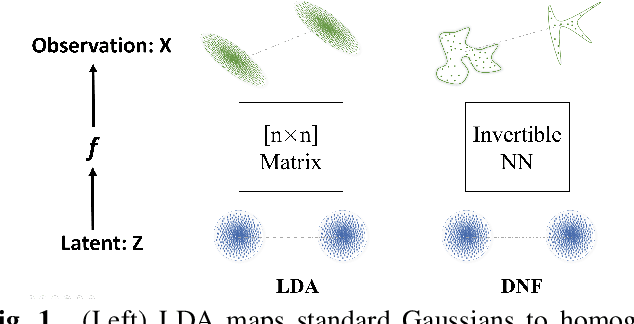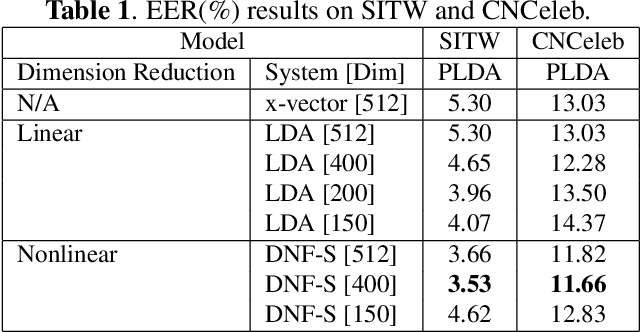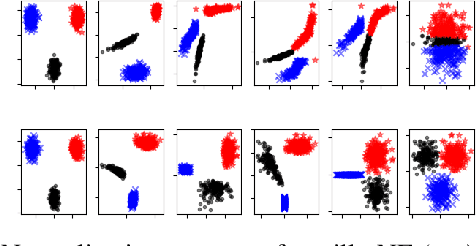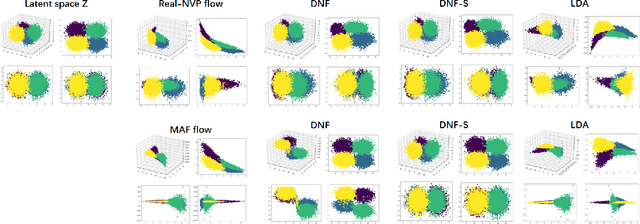Deep generative LDA
Paper and Code
Oct 30, 2020



Linear discriminant analysis (LDA) is a popular tool for classification and dimension reduction. Limited by its linear form and the underlying Gaussian assumption, however, LDA is not applicable in situations where the data distribution is complex. Recently, we proposed a discriminative normalization flow (DNF) model. In this study, we reinterpret DNF as a deep generative LDA model, and study its properties in representing complex data. We conducted a simulation experiment and a speaker recognition experiment. The results show that DNF and its subspace version are much more powerful than the conventional LDA in modeling complex data and retrieving low-dimensional representations.
 Add to Chrome
Add to Chrome Add to Firefox
Add to Firefox Add to Edge
Add to Edge